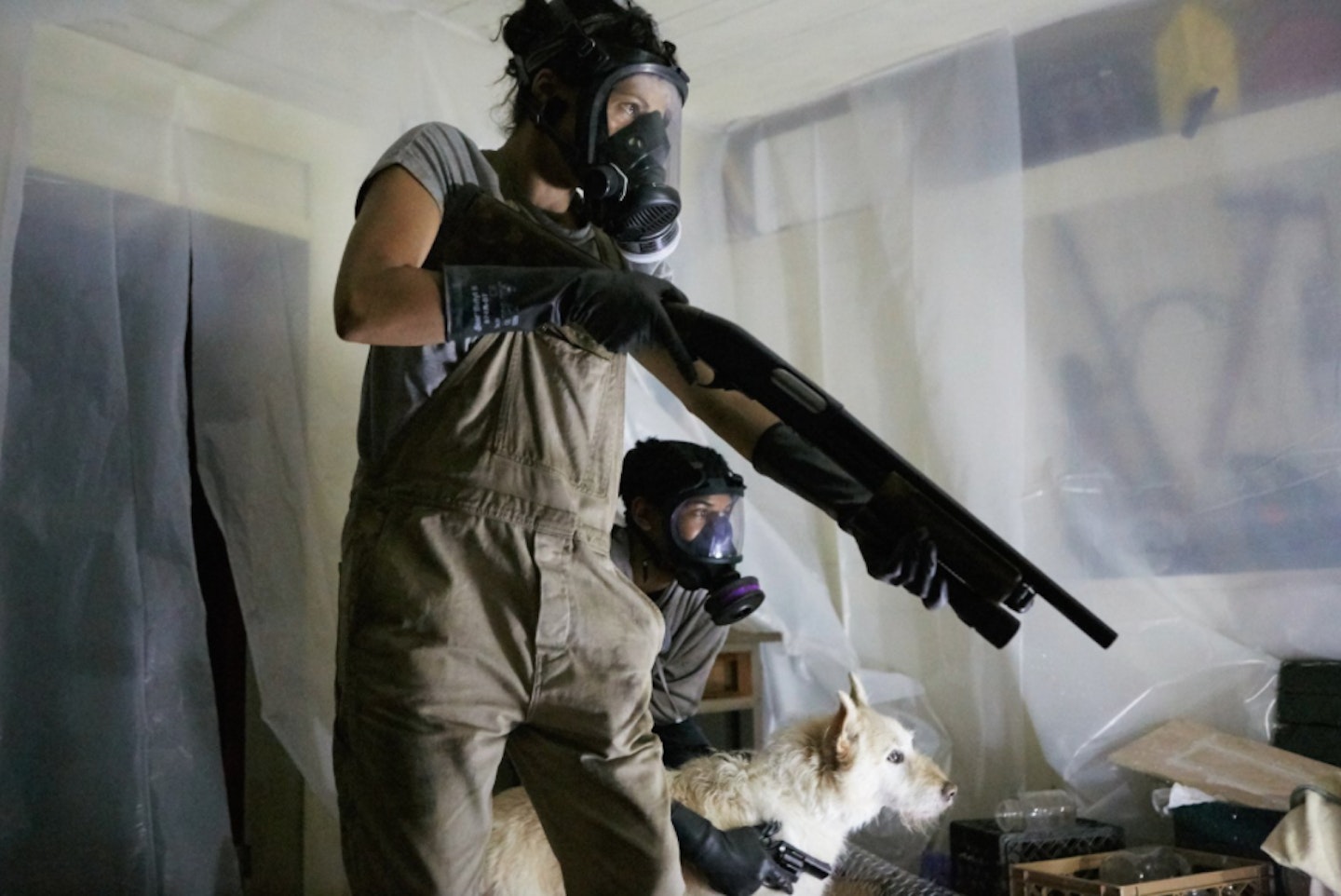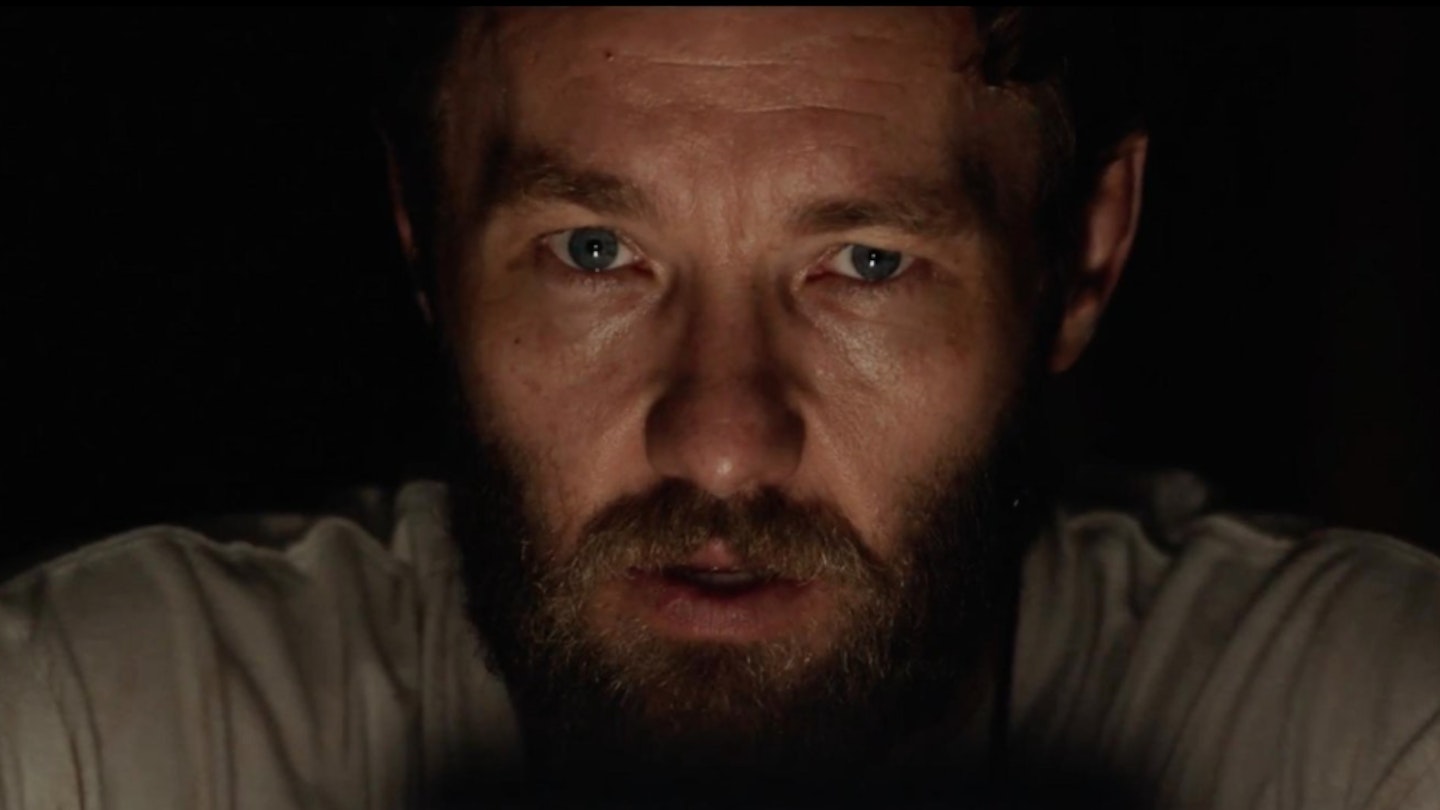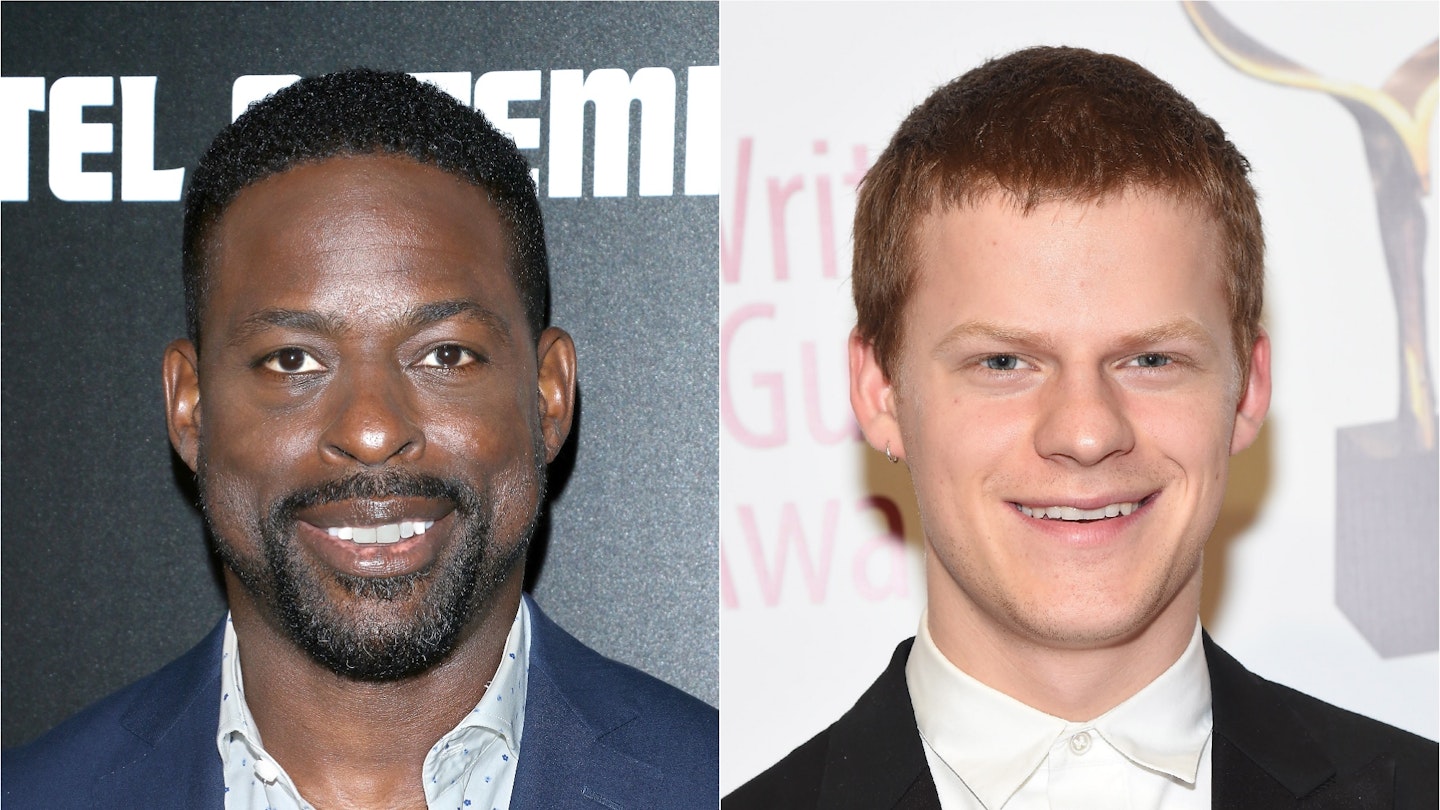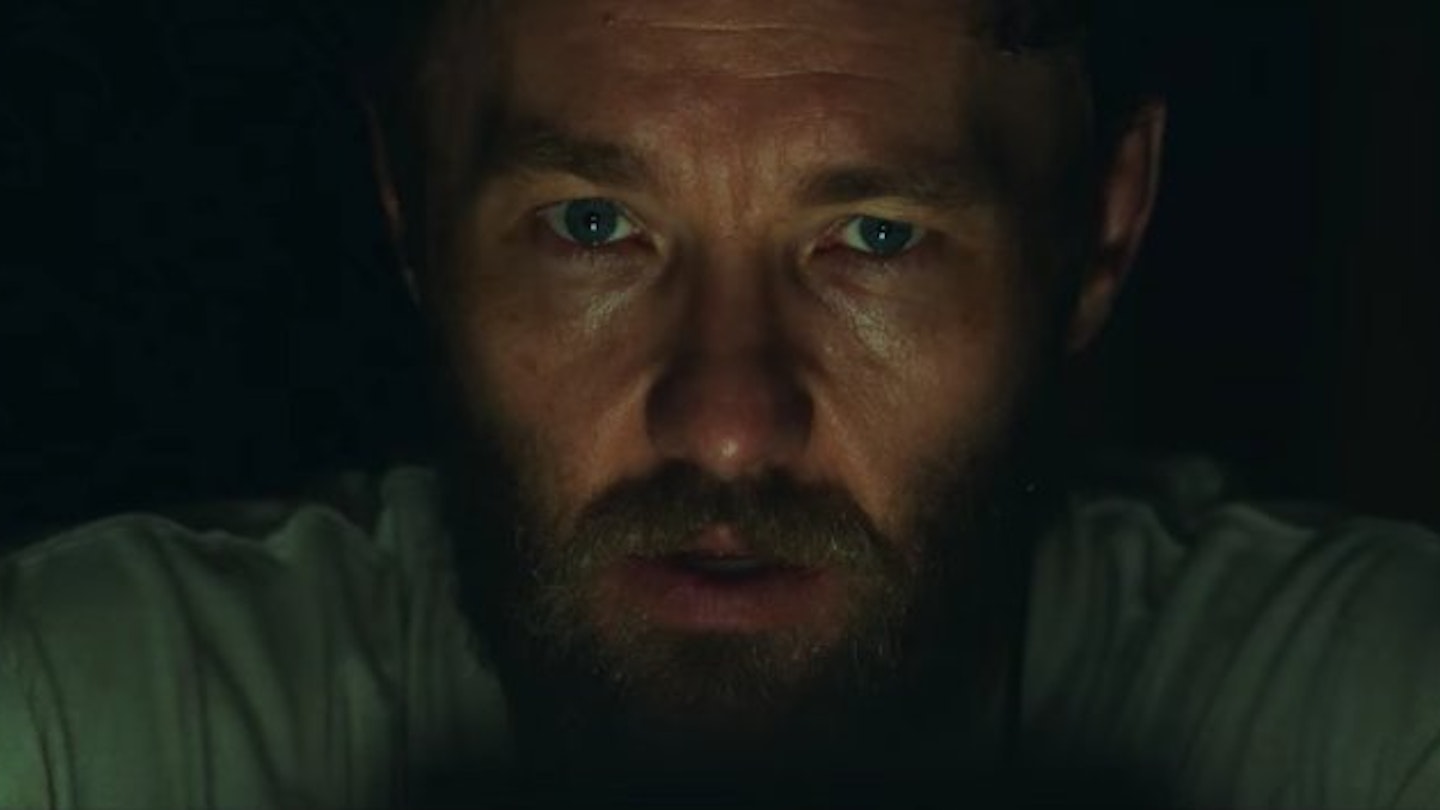After the apocalypse, movie characters have a hard choice to make: take to the road — as in Mad Max 2 or The Road — or hole up in a fortified enclave, as here. Neither option is ideal, and the collapse of society always means strangers aren’t to be trusted — but, then again, neither are close family members, or pets.
It Comes At Night is low-key, and yet also suspenseful. The approach is so calm and quiet that you find yourself straining to hear every suggestive creak on the soundtrack or spotting an omen in the background. Is that a tree or a twisted human figure in the mid-distance as the protagonist drives through the woods? Was that tiny inconsistency in a stranger’s account of life before the crisis an honest slip or a crack in a sinister cover story?

Edgerton gives one of his best performances.
By not going into the details of the outbreak that has wiped out most of humanity, It Comes At Night plays more as a horror film than a science-fiction one. What exactly is the “it” of the title? The blood-borne plague? Paranoia? Something worse? The depiction of hardscrabble life amid threatening woods evokes the historical horror of The Witch, while the focus on the extreme, not-always-popular measures taken by the patriarch to ensure the survival of his tight-knit family group suggests a less melodramatic take on 10 Cloverfield Lane — though the ruthless middle-class father has been a recurrent figure in apocalypse cinema since Ray Milland shot beatniks after the bomb fell in 1962’s Panic In Year Zero!. The usual question that arises is whether the regimented, paranoid, isolated life that can be maintained by shooting at passing strangers or euthanising (and incinerating) ailing relatives is worth surviving for.
While Joel Edgerton’s preparedness advocate Paul — with his double locks, polythene wall-hangings, battery lamps, gas masks, freshwater stockpile and strict rules of conduct — isn’t the monster John Goodman played in 10 Cloverfield Lane, there’s a sense that he takes grim satisfaction in the way the end of the world puts him in a position of absolute power in his home. Edgerton, who also produced, gives one of his best performances here without being at all showy. Everyone else has to play off him — and be wary of his character. Though Paul can introduce quarantine measures, he can’t stop his nearly grown son (Harrison Jr, in a potential breakout turn) from suffering gruesome nightmares — or consider what the sight of the stranger’s young wife (Keough) will stir in the isolated adolescent.
Writer-director Trey Edward Shults made the indie relationships drama Krisha — cast mostly with his own family — and carries his interest in the tensions within a close-knit group over to It Comes At Night. It’s not a film built on spectacle. Instead, it homes in on the stresses of getting by, day to day, in a world where trust feels unlikely. Or even impossible.




